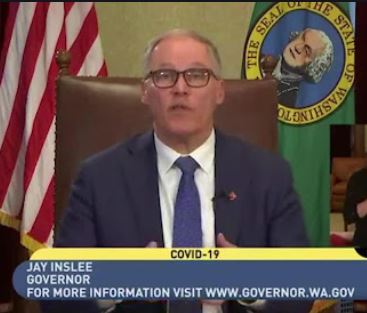[ic_add_posts tag=’covid’]
May 5: a general video update from Ross Hunter, Secretary of DCYF
Reduced availability of respite
For the duration of the covid-19 crisis, families cannot request respite from their Regional Placement Coordinator – they must go through their caseworker.
- Regional placement staff will not accept requests for respite effective April 6, 2020 for the duration of the COVID-19 crisis. Caseworkers may request respite support for a family in emergent circumstances with the approval of their supervisor.
- If a foster parent has a respite provider with whom they work directly and who is willing to continue with respite, the service can still be funded. The payment and documentation process within DCYF remains the same.
- Child Placing Agencies may continue to provide respite within their available resources.
In other words, respite is available but the placement desk is not making respite arrangements other than in a response to an emergent circumstance. The CPAs can arrange and provide respite within their resources, and they will be paid for those services, and foster parents who organize their own respite should be able to get that signed off on as well.
See the full announcement here.
Foster care visitations
DCYF webpage on Family Time Visitation
The link includes some data broken down by region regarding in person visitation and remote contact, and the current guidance by DCYF for visits.
DCYF form to request technology to enable remote visits
7/19/20 – Based on consultation with the Department of Health (DOH) and our network of partners, we are confident that some children can safely return to in-person visits now. While remote visits remain an option, we are asking caseworkers and visit contractors to work with parents, foster parents and caregivers and children to move to in-person visits when they can be completed safely, based on the COVID-19 protocols.
DCYF has been collecting data on visits during the pandemic. In the week starting April 27, some 5000 visits were scheduled across the state. Of those, 55% took place virtually, 3% took place in person, and 42% did not take place. The listed reason for those scheduled visits that did not occur was rarely technology issues (7%), and usually a refusal by one of the parties (almost never a caregiver).
Delay of court dates
WA Supreme Court announced a decision that says among other things that civil court cases (which includes adoptions, custody hearings and foster care hearings) should all be postponed until after April 24 unless they can be done remotely, but there may be exceptions based on specific rules for cases involving children or dependency orders.
- The pandemic counts as exceptional reasons for delay of parents receiving or pursuing service plans, or for continuation of any fact-finding hearings.
- Shelter care hearings are emergency matters, and a court may decide that any other hearing is also an emergency matter.
- Nothing has altered the rights to an attorney. Juvenile courts shall record their decisions on whether to appoint an attorney, and in contested remote hearings, parents and children must have the opportunity to speak confidentially to attorneys before cross examination.
- No default orders are to be entered that require personal service or appearance.
To find out if any cases you are involved in are affected, talk to the lawyers involved.
License condition waivers
Multiple WAC conditions are waived without request for new and existing foster home licenses. These include:
- In person first aid class requirement (replaced by online)
- Federal background check/fingerprints requirement
- Medical report/ TB testing
- In-person home inspections/interviews (replaced by online)
Further waivers may be available as required: contact your licensor if you believe you need one.
School
- Most WA school districts have not yet announced how they will reopen for the 2020-2021 school year
- see the OFPI website for statewide rules and updates.
Remote doctor’s visits
- Teladoc became available on February 1st for all Coordinated Care members in foster care, adoption support, alumni of care, and reunified youth. Youth (and caregivers) can use the Teladoc app, create an account, and contact a Washington State licensed provider about a range of issues, including respiratory or flu-like symptoms. Note there is heavy usage so it may be difficult to use at times – if possible get signed up before you need it. For more information see our page on Coordinated Care
General guidance
- WA Department of Health has established a call center to address questions from the public. If you have questions about what is happening in Washington, or how the virus is spread, please call 1-800-525-0127. Phone lines are currently staffed from 6 a.m. to 10 p.m, seven days a week. Please note that this call center can not access COVID-19 testing results.
The following DoH links may be helpful for the clients DCYF serves:

